2025: The year of the global cloud outage
Last checked from GitHub Pull Requests official status page 59 sec. ago
Collaborative platform for software development and version control.
Not working for you?
StatusGator last checked the status of GitHub on and the service was operational. There have been 2 user-submitted reports of outages in the past 24 hours.
This chart represents GitHub Pull Requests service health over the last 24 hours, with data points collected every 15 minutes based on issue reports, page visits, and signal strength. Sign up for free to see more GitHub Pull Requests status data.
24 hrs ending
View and upvote the most commonly reported GitHub Pull Requests issues to help us better indicate the service status.
Have a different problem with GitHub Pull Requests?
See recent outage reports from real GitHub Pull Requests users
1 outage reports in the last 24 hours
India
Server not responding
about 19 hours ago
about 19 hours ago
Explore our interactive GitHub Pull Requests outage map to monitor real-time incidents and service issues across the globe. This dynamic map highlights regions around the world affected by recent GitHub outages, giving you a clear view of performance and downtime trends.
Top reported GitHub outage locations, last 24 hours:
StatusGator detects outages before they are officially acknowledged by providers. Here are some recent GitHub disruptions that StatusGator customers knew about before the rest of the world:
This rating evaluates how quickly GitHub acknowledges incidents, the consistency of updates, and whether reported issues align with actual service disruptions experienced by users. Learn more.
Avg. delay 15 - 30 min
This rating evaluates how quickly GitHub acknowledges incidents, the consistency of updates, and whether reported issues align with actual service disruptions experienced by users. Learn more.
Avg. delay < 15 min
Avg. delay 15 - 30 min
Avg. delay 30 - 120 min
Avg. delay 2 - 4 hrs
Avg. delay >= 4 hrs
| Incident description | Duration | StatusGator detected | Officially acknowledged |
|---|---|---|---|
| Github Copilot requests failing due to unsupported API version | 1h 2m |
Never acknowledged
|
|
| Copilot returning 502 errors on requests. | 1h 12m |
Never acknowledged
|
|
| Service unavailable due to server errors | 24m |
4m later
|
|
| Copilot service unavailable | 1h 27m |
18m later
|
|
| 504 gateway timeout errors affecting service availability | 1h 21m |
Never acknowledged
|
|
| Service unavailable due to server errors. | 2h |
43m later
|
|
| Service unavailable due to 504 gateway errors. | 33m |
Never acknowledged
|
|
| 504 Gateway Timeout errors | 19m |
Never acknowledged
|
|
| Unable to view or browse files due to server errors. | 17h 6m |
2h 1m later
|
|
| Pull requests unable to merge or rebase. | 11m |
Never acknowledged
|
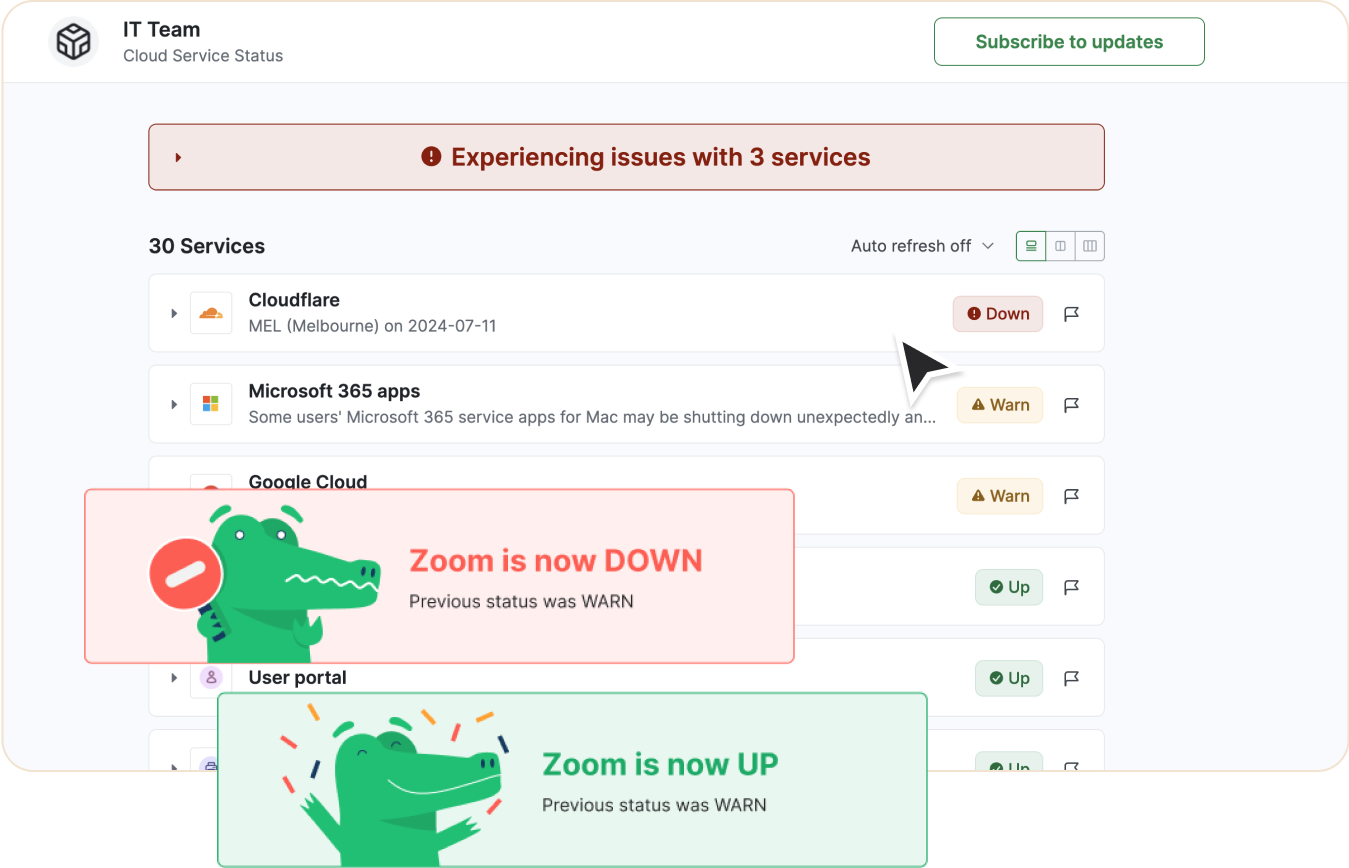
Follow the recent outages and downtime for GitHub Pull Requests in the table below. If you're experiencing a problem now, check the current GitHub Pull Requests status or
.| Incident Name | Duration | Started | Severity |
|---|---|---|---|
|
Disruption with some GitHub services
|
50m |
Warn
|
|
|
Copilot Policy Propagation Delays
|
19h |
Warn
|
|
|
Incident with Issues, Actions and Git Operations
|
1h |
Down
|
|
|
Notifications are delayed
|
1h 30m |
Warn
|
|
|
Incident with Pull Requests
|
1h 20m |
Down
|
Stay updated with instant alerts for GitHub Pull Requests outages by signing up now!
You can also monitor any service or website on your status page
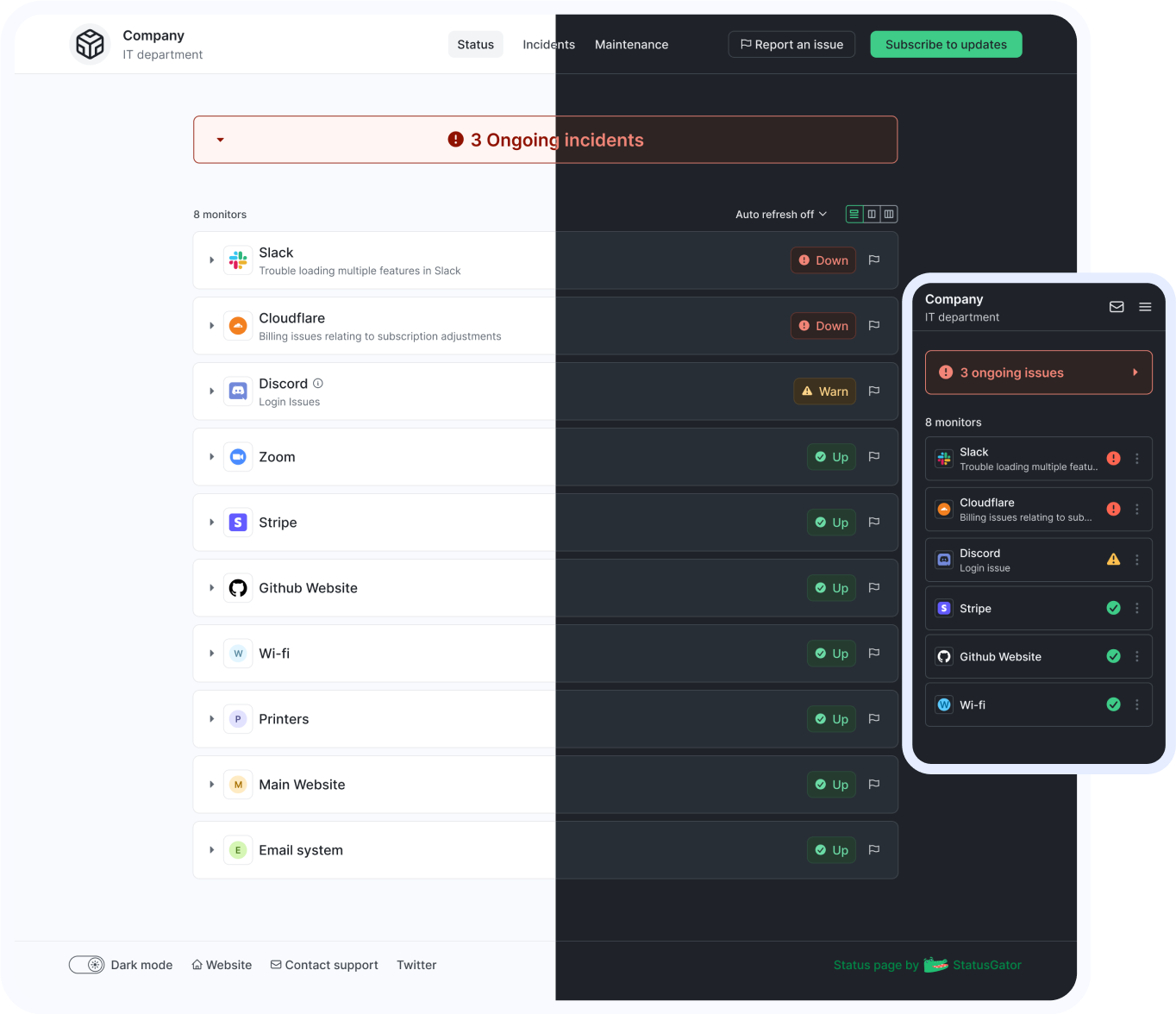
Stay updated with instant alerts for GitHub Pull Requests outages by signing up now!
With features designed to cover all your needs for monitoring and communicating outages or downtime, StatusGator keeps your team connected and informed. Stay updated on GitHub Pull Requests outages, potential problems, and its current status in real-time, ensuring you're always prepared to act.
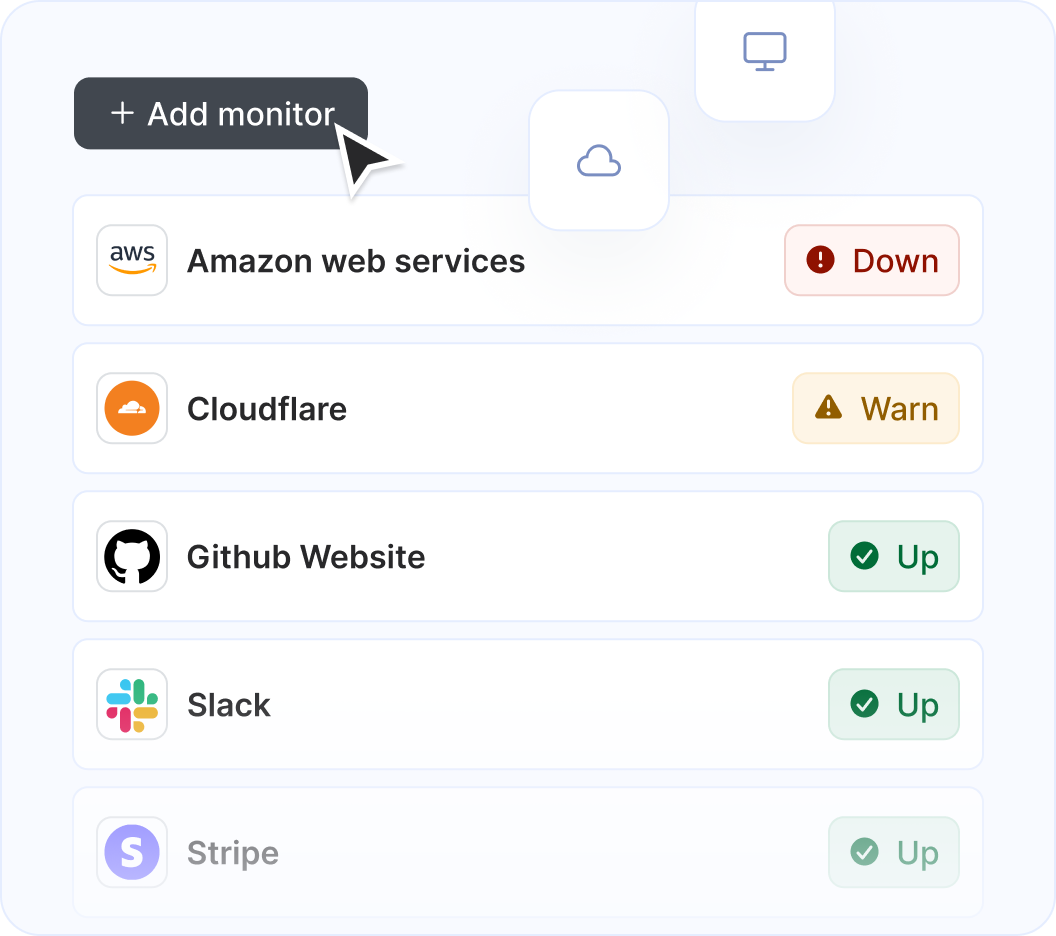

StatusGator monitors over 7,150 cloud services, hosted applications, and websites. Just add what you need to the list, and we'll automatically aggregate their statuses into a single page. You'll receive notifications for any issues affecting you and your page subscribers.
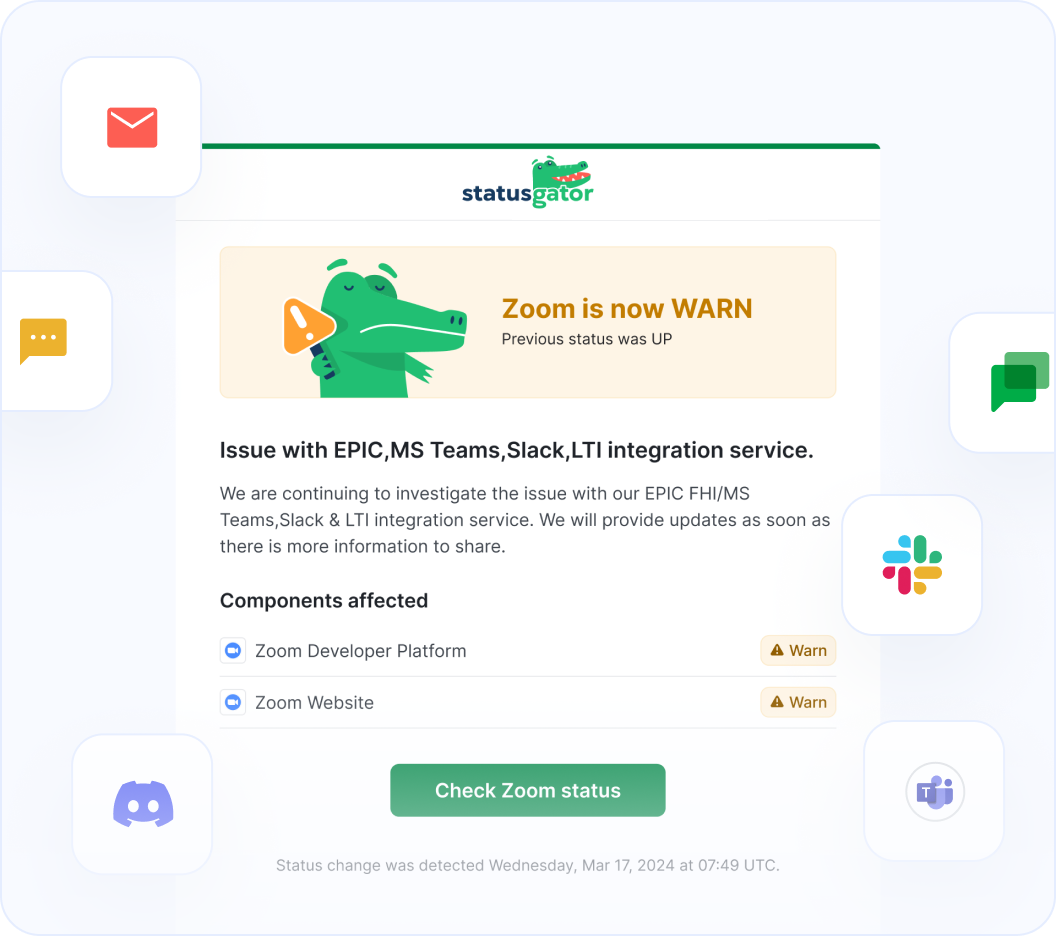
StatusGator monitors all of your services and websites and sends your team instant notifications when they go down. Stay abreast of issues that affect your team with notifications: in email, Slack, Teams, or wherever your team communicates.

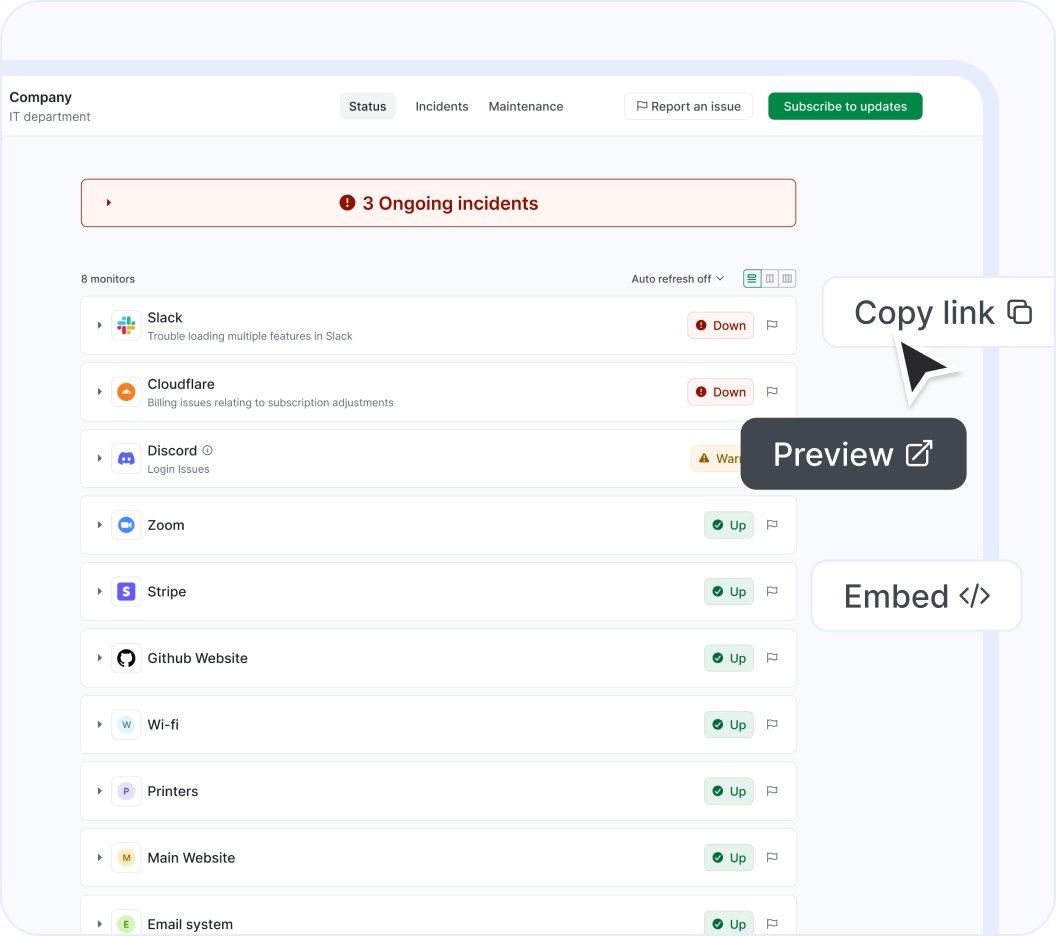

Easily notify your end-users of outages using a customizable status page. Display cloud services or websites, as well as any custom monitors you add manually. Create multiple status pages tailored to different needs, customize them, and embed them for maximum effectiveness.
GitHub Pull Requests (Collaborative platform for software development and version control) is a a DevOps solution that StatusGator has been monitoring since March 2015. Over the past almost 11 years, we have collected data on on more than 2,347 outages that affected GitHub Pull Requests users. When GitHub Pull Requests publishes downtime on their status page, they do so across 11 components using 4 different statuses: up, warn, down, and maintenance which we use to provide granular uptime metrics and notifications.
If you're wondering, "Is GitHub Pull Requests down?", or need to know its current status, we've got you covered. Our platform tracks every reported outage, performance issue, and maintenance window to ensure you're informed. Whether GitHub Pull Requests is experiencing a problem now or has recently resolved one, our detailed history keeps you updated.
More than 3,100 StatusGator users monitor GitHub Pull Requests to get notified when it's down, is under maintenance, or has an outage. This makes it one of the most popular DevOps services monitored on our platform. We've sent more than 773,000 notifications to our users about GitHub Pull Requests incidents, providing transparency and peace of mind. You can get alerts by signing up for a free StatusGator account.
If we detect a potential GitHub Pull Requests outage or other issue before it was reported on the official status page we will send an Early Warning Signal notification to StatusGator subscribers. We can often detect issues before they are officially acknowledged by the provider, giving you a head start on resolving any potential problems.
If GitHub Pull Requests is having system outages or experiencing other critical issues, red down notifications appear on the status page. In most cases, it means that core functions are not working properly, or there is some other serious customer-impacting event underway.
Warn notifications are used when GitHub Pull Requests is undergoing a non-critical issue like minor service issues, performance degradation, non-core bugs, capacity issues, or problems affecting a small number of users.
GitHub Pull Requests posts separate notifications for planned maintenance work. StatusGator will notify subscribers when GitHub Pull Requests enters a pre-planned maintenance window, keeping you up to date.
When GitHub Pull Requests posts issues on their status page, we collect the main headline message and include that brief information or overview in notifications to StatusGator subscribers.
When GitHub Pull Requests has outages or other service-impacting events on their status page, we pull down the detailed informational updates and include them in notifications. These messages often include the current details about how the problem is being mitigated, or when the next update will occur.
Because GitHub Pull Requests has several components, each with their individual statuses, StatusGator can differentiate the status of each component in our notifications to you whenever a particular component is down. This means, you can filter your status page notifications based on the services, regions, or components you utilize. This is an essential feature for complex services with many components or services spread out across many regions.
Stay updated with instant alerts for GitHub Pull Requests outages by signing up now!
Can't find your question? Email us to arrange a time to discuss. We'd love to chat!